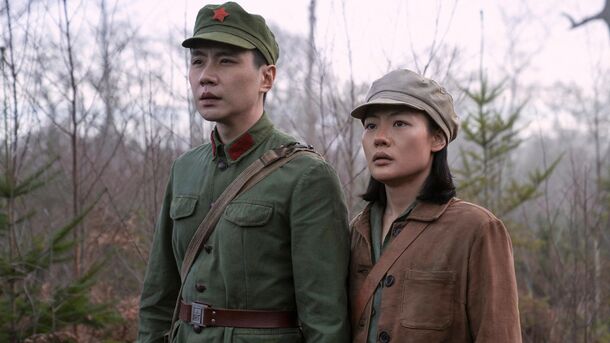Netflix's 3 Body Problem Did Dirty to Its Most Important Character

The Netflix series failed to convey the extent to which the atrocities of authoritarian regimes have repercussions many decades later.
Summary
- Recently, 3 Body Problem, based on the famous novel by Liu Cixin, was released on Netflix.
- And although the creators provided a very decent adaptation aimed at a global audience, they were blind to some of the author's implications.
- For example, the whole essence of the story and the trauma behind it should have been much more imbued with cynicism and resentment toward all of humanity.
The historical pain and trauma of the Cultural Revolution in Maoist China can be said to be one of the core motifs of the Remembrance of Earth's Past series by Liu Cixin. And, of course, this trauma is conveyed through the feelings of its central character, the astrophysicist Ye Wenjie, whose father was beaten to death by Red Guards, and who was subsequently sentenced to prison herself. In both the books and the recent Netflix adaptation, Ye, disillusioned with humanity, wishes only for its death.
What makes the character remarkable is that through her we see what authoritarianism and oppression do to their victims. But unfortunately, every action has its consequences, and so every cynical act only brings more pain to oneself and others. Except that the creators of Netflix's live-action adaptation, 3 Body Problem, unfortunately don't seem to have grasped this point at all.

The Tragic Backstory of a Tragic Character
Paramilitary youth organizations that zealously follow the ideals of their leaders are probably one of the most important signs of an authoritarian regime, for militarized and propagandized youth are the most loyal yet brutal enforcers of a dictator's will. The Hitler Youth in the Third Reich, the Khmer Rouge in Cambodia, and, of course, the Red Guards during the Cultural Revolution in mainland China-each of these groups caused a great deal of grief, death, and generational trauma from which humanity has sometimes failed to recover.
Liu Cixin was only a child during the bloody events of 1966-1976, but he perfectly captured the experience of trauma that has continued through the decades and still affects society today. Ye Wenjie's story began, as we said, with the public excommunication of her father, which even then led to a resentment in her soul against all of humanity.
The series, created by David Benioff, D.B. Weiss and Alexander Woo, conveys the horror of the situation as well as the novel, but unfortunately fails to reflect on one thing: violence only begets more violence, and in the books Ye has become an effective product of the Cultural Revolution — not in terms of leftist ideals, but in terms of sheer cynicism.

The Dire Consequences of Her Own Actions
Liu Cixin conveys with extreme candor the extent to which the victims of oppression become misanthropic. Ye Wenjie not only wishes the worst for humanity by inviting the Trisolarans (San-Ti in the series) to Earth, but also actively supports this endeavor, not hesitating to kill those who oppose this goal. Thus, even after the Cultural Revolution, she has the blood of many colleagues and subordinates on her hands, as well as the death of an unloved spouse and daughter.
Like the extermination of sparrows in Mao's China, followed by the disruption of the food chain and the ecological imbalance, every action has consequences, and in the books Ye Wenjie's end was proportional to her outlook on life-the lonely death of a woman stripped of everything, largely of her own free will. In the show, however, the writers show her no small amount of compassion, not only softening her over the course of the story, but also giving her comfort in the form of a painless death in the company of her former colleague.
This isn't a bad plot choice, considering that Ye was a victim of the cruelty and cynicism of her surroundings. Still, she compared herself to what she hated most, and so the show degrades that moment by offering her redemption.
